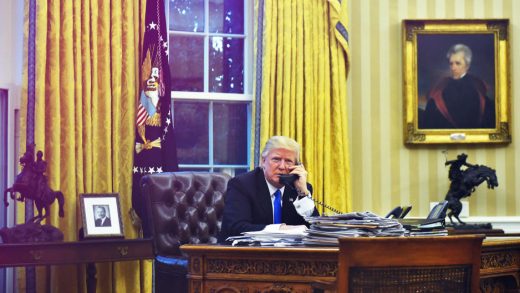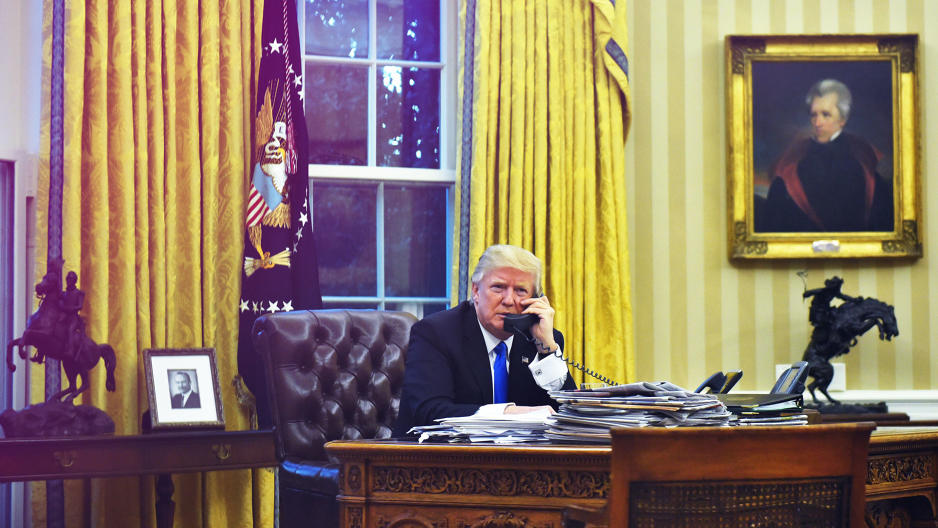Why Trump’s H-1B Visa Overhaul Might Not Make America Great Again
This story reflects the views of this author, but not necessarily the editorial position of Fast Company.
For years, economists and politicians have complained about the abuse of the H1-B visa program—claiming that a system meant to attract highly skilled workers for roles that Silicon Valley struggled to fill in the States was being used to staff tech positions at pay rates too low for most Americans to accept. On the campaign trail, Donald Trump stressed the need to revamp the system by raising the wage requirement and hiring Americans: “I will end forever the use of the H-1B as a cheap labor program, and institute an absolute requirement to hire American workers for every visa and immigration program. No exceptions.”
The Trump administration has recently drafted an executive order to prepare for such an overhaul, which includes the following:
Our country’s immigration policies should be designed and implemented to serve, first and foremost, the U.S. national interest . . . Visa programs for foreign workers . . . should be administered in a manner that protects the civil rights of American workers and current lawful residents, and that prioritizes the protection of American workers—our forgotten working people—and the jobs they hold.
But to make good on these “America First” intentions, the Trump team is championing certain proposals that could undermine them. One potential unintended outcome, labor experts believe, would be to encourage U.S. companies to outsource labor to India and other low-wage markets, thereby taking those jobs from Americans. And an even likelier consequence is that consumer products, from the iPhone to VR headsets, could surge in price as companies are forced to raise wages to attract American workers.
VIDEO: HOW AN EXECUTIVE ORDER ON H-1B VISAS COULD ACTUALLY HURT THE AMERICAN WORKFORCE
The draft order also proposes several changes to other visas vital to Silicon Valley, such as shrinking the amount of time a foreigner with a student visa is allowed to work in the U.S. after graduating. Another provision that’s up for elimination is the L1 visa, which lets companies transfer a foreign worker from an overseas branch to its U.S. office.
There’s little doubt that the current H1-B visa system has strayed from its original intention of hiring workers for highly technical positions—those that tend to command big salaries—in science, technology, engineering, and math at companies like Google and Apple. These days, many H-1B visas go to to companies like Tata Consultancy and Infosys, which recruit low-wage workers primarily from India to staff the technology departments of major American firms. Trump and fellow reform advocates aren’t wrong to point up that problem.
What’s more, about 40% of the 85,000 H-1B visas available each year go to such outsourcing companies, according to research by Ron Hira, an associate professor of public policy at Howard University. His findings also showed that those outsourcing firms paid workers 20%-30% less than the average salaries for those roles in California. Last year, Disney World became a poster child for this kind of abuse when it fired more than 200 IT workers and replaced them with foreign workers on H1-B visas, recruited through an outsourcing firm.
But while Trump’s plan to raise the wage requirement—and several pieces of legislation that attempt the same—could stem this inflow of lower-wage tech workers, it also threatens to shrink the overall labor pool for those roles, warns Hira. “It might be hard to find Americans for those jobs,” he says, “and then those companies might have to go abroad to find those people [anyway].” It’s one thing to use outsourcing firms to bring in foreign workers for U.S.-based jobs, but it’s even cheaper to get workers in Bangalore to do your back-office work. In that scenario, you’re still not delivering jobs to Americans.
And if such a proposal does succeed at getting U.S. companies to hire more Americans, they’ll likely be at higher wages, raising companies’ overhead. “And then they’re going to have to pass that cost in some way,” Hira tells Fast Company, most likely “to the consumer in the form of higher prices.
Reforming the H-1B visa process is long overdue, but it’s not going to change employers’ mind-sets overnight. For years, they’ve gotten used to finding highly qualified labor on the cheap, says Gary Burtless, a senior fellow at the Brookings Institution who studies in labor markets. “It’s become far too easy for employers to say, ‘I can’t find any Americans to do the job’ and then look to these outsourcing firms for those workers. Well maybe that’s because you offered such a low wage.”
And there’s also the possibility that some smaller U.S. companies may pick up and move altogether, to a country where such visas are still plentiful for lower-wage workers. “There are billboards in Silicon Valley that say, ‘Have a visa problem? Come on up to Canada,'” Rob Atkinson, president of the Information Technology and Innovation Foundation (ITIF), tells Tech Republic. The administration’s approach to reforming the program “will make it harder for U.S. tech companies to thrive and for tech companies to grow,” said Atkinson.
“It’s not going to make America great again.”
Fast Company , Read Full Story
(43)



